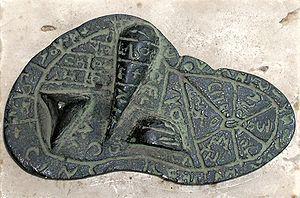“Man is born free, and everywhere he is in chains.”
With this famous sentence, Jean-Jacques Rousseau begins his masterful critique of political power. Less well known is another sentence from The Social Contract (1762): “No State has ever been founded without Religion serving as its base.”
My reading of history is that Rousseau was right. State-formation has always been accompanied and enabled by religion. If archaeologists have ever excavated an ancient or Neolithic city-state that did not clearly evince the marriage of power with religion, I am unaware of it.
When it comes to more recent city-states, such as Rome, we needn’t rely on archaeological evidence. The record is clear: Roman political power was inextricably linked to Roman civic religion. It is commonplace for historians to observe that the founding of Rome (~750 BCE) “is shrouded in myth.” While true, this is not the simple result of story accretion or faulty memory. The myths were deliberately created and deployed.
Rome’s early leaders knew perfectly well that political power required religious backing. As was so often the case, what Rome lacked it borrowed. Much of this borrowing came from Rome’s older, more powerful and sophisticated neighbor to the north: Etruria. Although Etruscan influence on Rome was considerable, it was most pronounced in the realm of religion. Dominique Briquel (open access) explains:
Such a state of affairs stems from the fact that, in their national religious heritage, the Etruscans had at their disposal a collection of ritual and divination practices of which the Romans knew no equivalent. A great many such rites were borrowed by Rome from her northern neighbours, who had developed them long before Rome felt any such need. The most famous of these was the foundation ritual of cities: it was unanimously admitted that when Romulus founded the city, he had recourse to Tuscan specialists.
It was in the all important realm of divination or haruspicy, however, that Rome felt the greatest need to borrow:
The Etruscans had developed a body of divinatory knowledge which permitted them, for example, to assign meaning to patterns of lightning (keraunoscopy), to decipher the indications contained in the liver or in other organs of sacrificial victims (hepatoscopy), and generally to understand why the gods provoked the whole array of unusual phenomena behind which supernatural intervention was perceived, designated by the term “prodigies” (prodigia). The Etruscans had carefully studied all of these, and they had devoted to them an entire specialized literature called, quite simply, the “Etruscan books.” (Briquel 2007:154).

Bronze "Liver" with Etruscan Inscriptions
There were several categories of such books which together formed a body of knowledge known as “Etrusca disciplina.” This choice of words sheds considerable light on Roman epistemology: “The term ‘discipline’ is important, since it shows that the ancients considered it a veritable science, which is the meaning of the word in Latin, even if it was used specifically in the domain of religion” (id.).
Here we have a nice example of J.G. Frazer’s contention that divinatory practices, which might be considered a form of “magic,” presaged later scientific notions of cause and effect. I find it telling that the formative Chinese dynasties employed similar divinatory practices and linked them to political power. What Frazer called “magic” was simply a form of supernaturalism that can be found, in one form or another, in all religions.
Reference:
Briquel, Dominique (2007). Tages Against Jesus: Etruscan Religion in Late Roman Empire Etruscan Studies, 10 (1), 153-161



